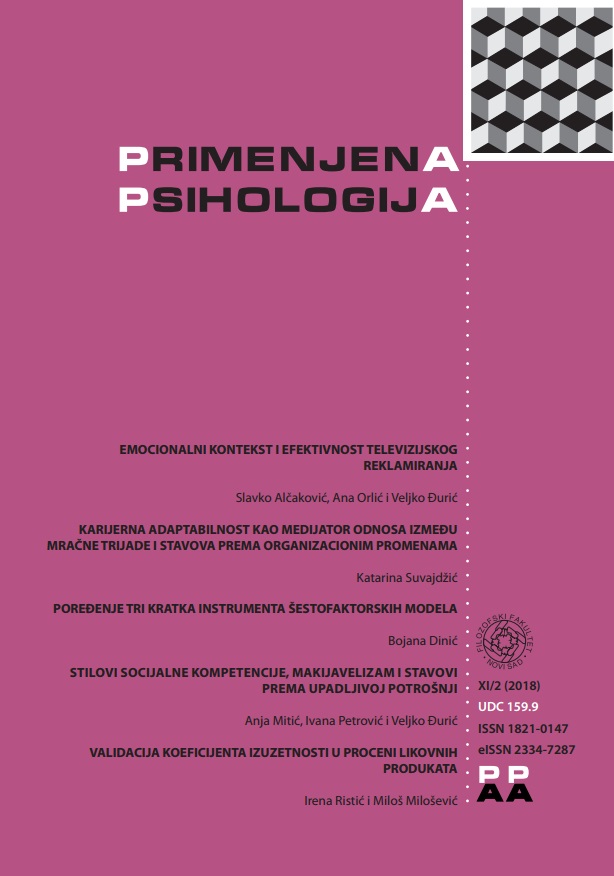EMOTIONAL CONTEXT AND EFFECTIVENESS OF TV ADVERTISING
EMOTIONAL CONTEXT AND EFFECTIVENESS OF TV ADVERTISING
Author(s): Slavko Alčaković, Ana Orlić, Veljko ĐurićSubject(s): Psychology, Media studies
Published by: Филозофски факултет, Универзитет у Новом Саду
Keywords: emotional context; ad; effectiveness; media planning
Summary/Abstract: This study examined the impact of emotional context on effec-tiveness of TV commercials (TVCs). In two experiments, partici-pants were exposed to either emotionally positive or emotionally negative stimuli before watching a TVC. The effectiveness of the TVC was measured by 4 indicators: Ad recall, attitude toward the ad (Aad), attitude toward the brand (Ab), and purchase in-tent (PI). Results of Experiment 1 revealed that participants who were pre-exposed to a positive emotional context had a more positive Aad, Ab and a higher PI, when compared to those who were pre-exposed to a negative emotional context. Experiment 2 demonstrated that pre-exposure to the positive emotional context was associated with more positive Ab and a higher PI, while pre-exposure to the negative emotional context led to more negative Aad. In both experiments there was no indication of the influence of the emotional context on Ad recall. However, data from Ex-periment 2 suggested that both positive and negative emotional contexts positively affected ad recognition, when compared to an emotionally neutral situation. In conclusion, our findings advocate the importance of emotional context in which TVCs are broad-casted to the general public, a fact that has been vastly neglected so far by media planners.
Journal: Primenjena psihologija
- Issue Year: 11/2018
- Issue No: 2
- Page Range: 155-170
- Page Count: 16
- Language: English

